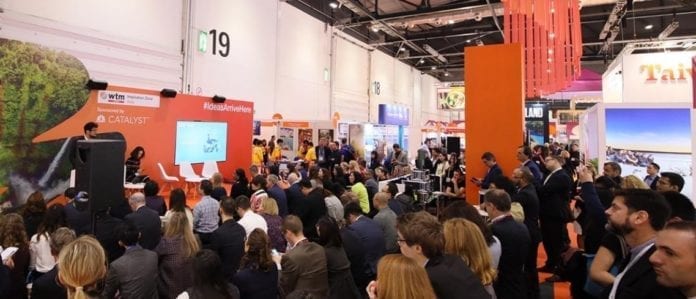Consumer technology has a role to play in helping tackle over-tourism, delegates were told in a session on digital marketing held in the Asia zone at WTM London today.
Mapping app and audio guide specialist Vox has started working with an Asian airport to enable arrivals to download suggested walking and cycling tours off the beaten track. “It’s about moving people away from the hotspots,” said CEO John Boulding.
Encouraging tourists to download software on the move also allows destinations to create heat maps of where people go in a city and to help disperse them with suggestions for less frequented attractions.
In the longer term, such data capture can give destinations a valuable insight into different markets. “We know where German, Chinese or Russian visitors went at various times…. Destinations can collect data in the travel planning stage and on arrival and marry the two together,” explained Boulding.
There was a warning note however sounded on the homogenized use of statistics. In a session on leveraging destination brands panellists stressed the importance of differentiation when marketing.
“Everyone wants to have a bespoke travel agent in their pocket who knows what they like and doesn’t send them what they’re no interested in – that’s where analytics comes in… but we’ve got to be careful not to lose the emotional side…” said South African Tourism’s CEO Sisa Ntshona.
“People want something that is more personalised. Identify the correct audience base and contact them at the right time,” agreed Issam Kazim, CEO of Dubai Corporation for Tourism and Commerce Marketing.
Engaging the wider population is also important in heavily tourism reliant countries delegates were told. South African Tourism has been using the hashtag #wedotourism and has launched awards for those indirectly involved in the sector.
“We have been targeting people outside hospitality, down to the person giving the passport stamp. We all have a role in tourism, like the getting a man to the moon analogy,” said Ntshona. “The better tourism does, the better the economy does and jobs do and it benefits everyone.”
Those hoping to court the booming China market were meanwhile told not to underestimate the importance of word-of-mouth via social media.
Chinese travellers use social media more heavily than their Western counterparts with 60% posting three to five times a day while on holiday said speakers from specialist digital marketing agency Dragon Trail.
Travel companies and hotels were advised to check out their existing online reputation by employing a Chinese speaker to search review sites, also to encourage feedback from their Chinese guests – ideally via a QR code.
“Use user-generated content as part of your marketing strategy,” said Dragon Trail’s managing director EMEA Roy Graff.
While the Chinese have only been able to travel widely in recent years, still closed off North Korea is being embraced by the Pacific Asia Travel Association, which will next year launch an initiative called Peace to Tourism.
“With the support of our agencies we hope we can help in the reunification of North and South Korea and help alleviate poverty,” said PATA’s CEO Dr Mario Hardy.
eTN is a media partner for WTM.





Leave a Comment